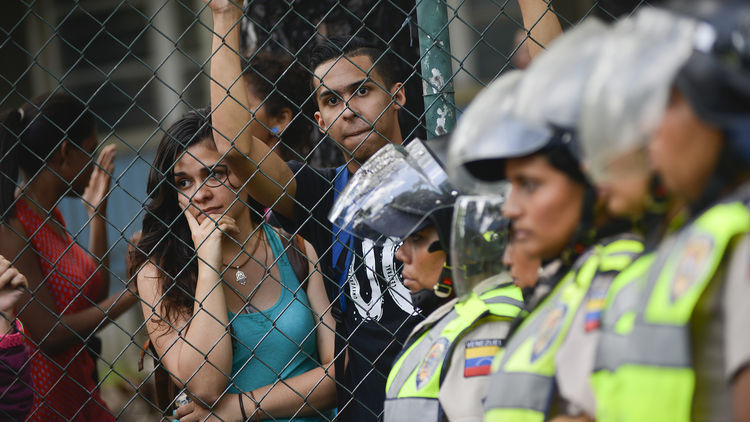
Venezuela’s warring political factions have restarted efforts to end a bitter political standoff as the country’s economy continues to spiral into deep recession.
Foreign Minister Delcy Rodriguez said Saturday on Twitter that government officials and opposition politicians had held their first meetings toward opening a dialogue in the polarized nation. With the support of the Union of South American Nations and a slew of regional leaders, Rodriguez and others government representatives met with opposition party members to ensure the “peace” and “well-being” in the South American country, she said.
Earlier, the state-run Telesur network reported that leaders of Venezuela’s ruling socialist party and opposition had met in the Dominican Republic on Friday with former presidents of that country, Spain and Panama in efforts to end the country’s political crisis.
The meeting comes as the OPEC member’s economy has been thrown into turmoil by the collapse in oil prices, and as Venezuela’s opposition doubles down on its efforts to end the rule of President Nicolas Maduro, calling for a recall referendum and nationwide protests against his government. Maduro was elected in 2013 to a six-year term following the death of President Hugo Chavez.
Opposition Skeptical
Various regional allies and global agencies, including the United Nations, have urged both sides to talk as the country endures triple-digit inflation, rolling blackouts and chronic shortages of basic consumer goods.
Still, opposition leaders were skeptical of potential talks. Opposition coalition chief Jesus “Chuo” Torreabla wrote on Twitter that the encounters so far have been “informal” and that there have been no official “government-opposition” meetings.
In a statement, the country’s opposition coalition said that potential talks depended on the government’s release of political prisoners and allowing a referendum on Maduro to take place this year.
Previous efforts at peace talks broke down in 2014 after months of anti-government demonstrations that left dozens dead and hundreds injured. While the economic crisis has continued to worsen since then, and Maduro’s popularity has fallen below 30 percent, the opposition’s calls to the street have met with a tepid response.
Opposition leadership accuses the government of thwarting its political initiatives through the courts, and stalling its recall efforts to avoid early elections.
Recommended for you
